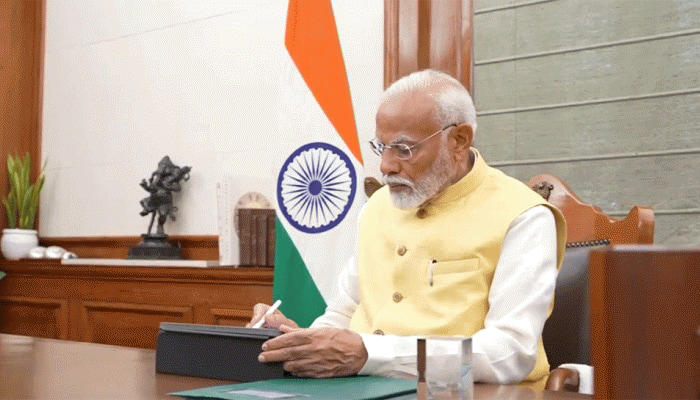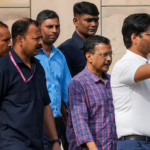On Monday, Prime Minister Narendra Modi took office with a strong commitment to “kisan kalyan,” or the welfare of farmers, signifying the government’s focus on agricultural development and support for farmers. In line with this commitment, PM Modi’s first significant action involved the continuation and reinforcement of a flagship scheme aimed at providing direct financial assistance to small and marginal farmers across the country.

The Prime Minister signed his first file authorizing the release of the 17th installment of the PM Kisan Samman Nidhi (PM-KISAN) scheme. This installment will distribute Rs 20,000 crore directly to 9.3 crore farmers. This initiative underscores the government’s dedication to ensuring financial stability and support for the farming community, especially those with limited resources.
The PM-KISAN scheme, launched in December 2018, aims to provide income support to small and marginal farmers by offering them a financial benefit of Rs 6,000 per year, payable in three equal installments of Rs 2,000 each. These payments are directly transferred to the bank accounts of the beneficiaries, thus ensuring transparency and efficiency in disbursal. This scheme is a pivotal part of the government’s strategy to bolster the agricultural sector, which is the backbone of the Indian economy.
The direct cash transfer scheme has been particularly significant in mitigating the financial hardships faced by farmers, ensuring that they have the necessary resources to invest in their farming activities and meet their daily needs. The release of the 17th installment is not just a routine disbursement but a reaffirmation of the government’s ongoing support and solidarity with the farming community.
Moreover, the PM Kisan Nidhi scheme is designed to address the systemic issues faced by small and marginal farmers, including lack of access to credit and financial services. By providing direct cash transfers, the scheme aims to empower farmers, reduce their dependence on informal sources of credit, and enhance their capacity to invest in modern farming techniques and inputs.

This decision also reflects the government’s broader agricultural policy framework, which includes various other measures aimed at improving farm productivity, ensuring fair prices for agricultural produce, and enhancing the overall quality of life for farmers. Initiatives such as improved irrigation facilities, crop insurance schemes, and enhanced market access are all part of this comprehensive approach to agricultural development.
In conclusion, Prime Minister Narendra Modi’s first decision in office to authorize the release of the 17th installment of the PM Kisan Nidhi highlights his administration’s unwavering commitment to the welfare of farmers. This move not only provides immediate financial relief to millions of farmers but also reinforces the government’s long-term vision of a prosperous and self-reliant agricultural sector in India.








